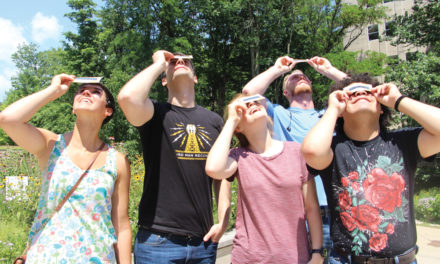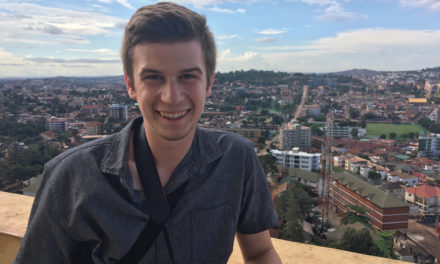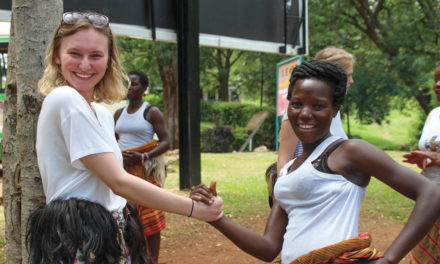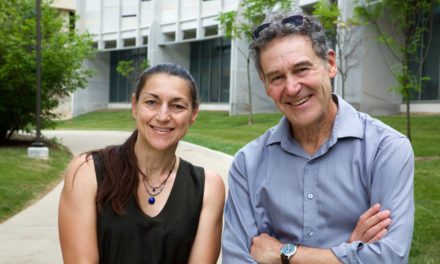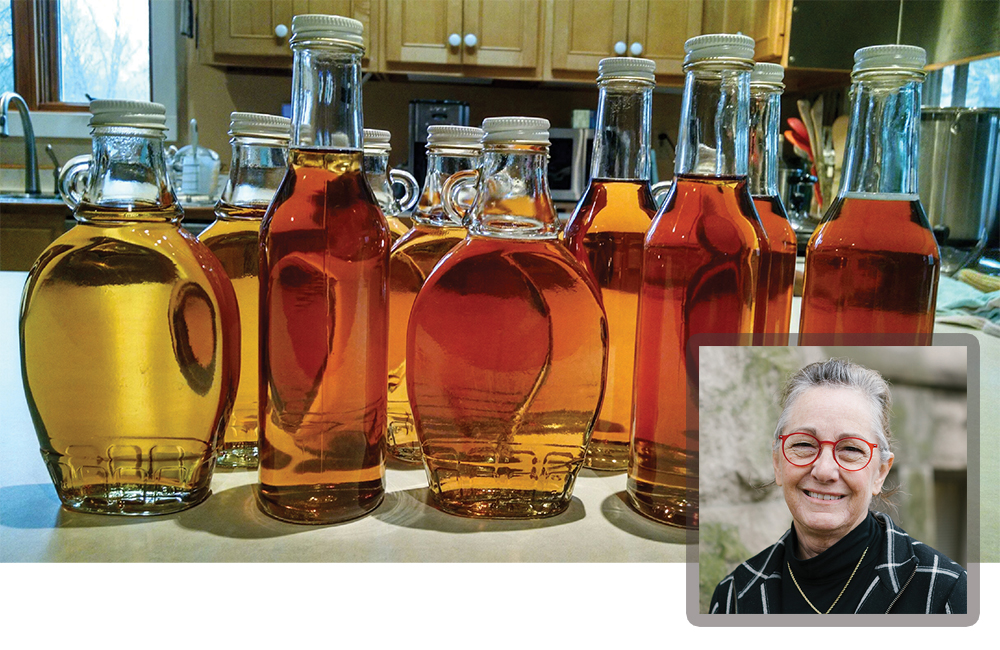
(above) Maple syrup from trees on the Pratt property in New Unionville. Courtesy photo (inset) NASA Planetary Protection Officer Lisa Pratt. Photo by Anna Powell Teeter, Indiana University
BY SUSAN M. BRACKNEY
There were about 1,400 other applicants for arguably one of the most important jobs on the planet—safeguarding our biosphere from extraterrestrial biological contaminants and preventing earthly organisms from wreaking havoc on planets we might explore in the future. But Lisa Pratt, formerly a geological sciences professor in the Indiana University Department of Earth and Atmospheric Sciences, now holds the out-of-this-world title of Planetary Protection Officer for NASA’s Office of Safety and Mission Assurance.
“I love thinking about being a spacefaring nation,” Pratt says. “More and more nations are able to get above lower orbit. Companies can launch into space. All of the decisions and policies and challenges around that—those are the best parts of the job.”
Since early February, Pratt has split her time between a Washington, D.C., apartment and her New Unionville, Indiana, home. “Being surrounded by the human-constructed world—and humans, frankly—remains the single greatest challenge of the job,” she admits. “The whole reason my husband, Bruce, and I live out in New Unionville is because of the closeness of the land and being surrounded by nature.”
When Pratt is home, she and her husband, Bruce Douglas, also a Department of Earth and Atmospheric Sciences faculty member, tap maple trees on their property to make their own maple syrup. “We usually only tap about 10 trees,” she says. “Thank goodness we didn’t do more this year, because last week while I was away for my new job in D.C., my husband had to deal with nearly 50 gallons of sap in one week!”
The pair uses old-fashioned equipment and methods but keeps detailed records, too. “Is the same tree a big producer year after year?” Pratt asks. “Does it depend on where you put the tap or does it depend on the weather? If you’re a scientist in your job, you tend to do your hobbies like a scientist.”
As she boils the viscous, sweet liquid, Pratt can’t help but see cosmic parallels.
“When we’re in the final steps of concentrating the syrup, it’s like a salty brine on another planet. Generally, it’s a fluid that’s pretty uninhabitable. You wonder, ‘Why aren’t there any bacteria that can live and thrive in maple syrup? What are the limits for life on Earth?’”


